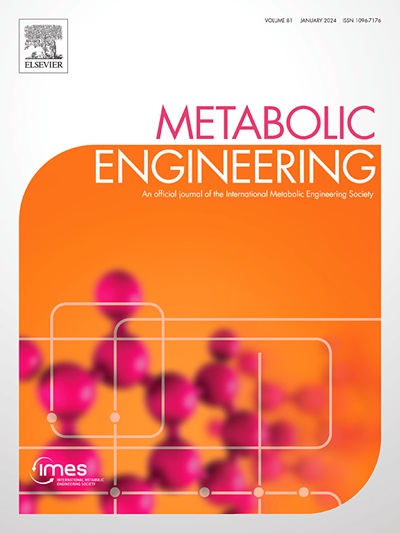BGC heteroexpression strategy for production of novel microbial secondary metabolites
IF 6.8
1区 生物学
Q1 BIOTECHNOLOGY & APPLIED MICROBIOLOGY
引用次数: 0
Abstract
Biosynthetic gene clusters (BGCs) in microbial genomes play a crucial role in the biosynthesis of diverse secondary metabolites (SMs) with pharmaceutical potential. However, most BGCs remain silent under conventional conditions, resulting in the frequently repeated discovery of known SMs. Fortunately, in the past two decades, the heterologous expression of BGCs in genetically tractable hosts has emerged as a powerful strategy to awaken microbial metabolic pathways for making novel microbial SMs. In this review, we comprehensively delineated the development and application of this strategy, highlighting various BGC cloning and assembly techniques and their technical characteristics. We also summarized 519 novel SMs from BGC hetero-expression-derived strains and described their occurrence, bioactivity, mode of action, and biosynthetic logic. Lastly, current challenges and future perspectives for developing more efficient BGC hetero-expression strategies were discussed in this review.
新型微生物次生代谢产物的BGC异源表达策略。
微生物基因组中的生物合成基因簇(BGCs)在多种具有药用潜力的次生代谢物(SMs)的生物合成中起着至关重要的作用。然而,大多数bgc在常规条件下保持沉默,导致经常重复发现已知的SMs。幸运的是,在过去的二十年中,BGCs在遗传易感宿主中的异种表达已经成为唤醒微生物代谢途径以产生新的微生物SMs的有力策略。本文综述了该策略的发展和应用,重点介绍了各种BGC克隆和组装技术及其技术特点。我们还总结了来自BGC异表达衍生菌株的519个新的SMs,并描述了它们的发生、生物活性、作用方式和生物合成逻辑。最后,本文讨论了开发更高效的BGC异表达策略所面临的挑战和未来的展望。
本文章由计算机程序翻译,如有差异,请以英文原文为准。
求助全文
约1分钟内获得全文
求助全文
来源期刊

Metabolic engineering
工程技术-生物工程与应用微生物
CiteScore
15.60
自引率
6.00%
发文量
140
审稿时长
44 days
期刊介绍:
Metabolic Engineering (MBE) is a journal that focuses on publishing original research papers on the directed modulation of metabolic pathways for metabolite overproduction or the enhancement of cellular properties. It welcomes papers that describe the engineering of native pathways and the synthesis of heterologous pathways to convert microorganisms into microbial cell factories. The journal covers experimental, computational, and modeling approaches for understanding metabolic pathways and manipulating them through genetic, media, or environmental means. Effective exploration of metabolic pathways necessitates the use of molecular biology and biochemistry methods, as well as engineering techniques for modeling and data analysis. MBE serves as a platform for interdisciplinary research in fields such as biochemistry, molecular biology, applied microbiology, cellular physiology, cellular nutrition in health and disease, and biochemical engineering. The journal publishes various types of papers, including original research papers and review papers. It is indexed and abstracted in databases such as Scopus, Embase, EMBiology, Current Contents - Life Sciences and Clinical Medicine, Science Citation Index, PubMed/Medline, CAS and Biotechnology Citation Index.
 求助内容:
求助内容: 应助结果提醒方式:
应助结果提醒方式:


